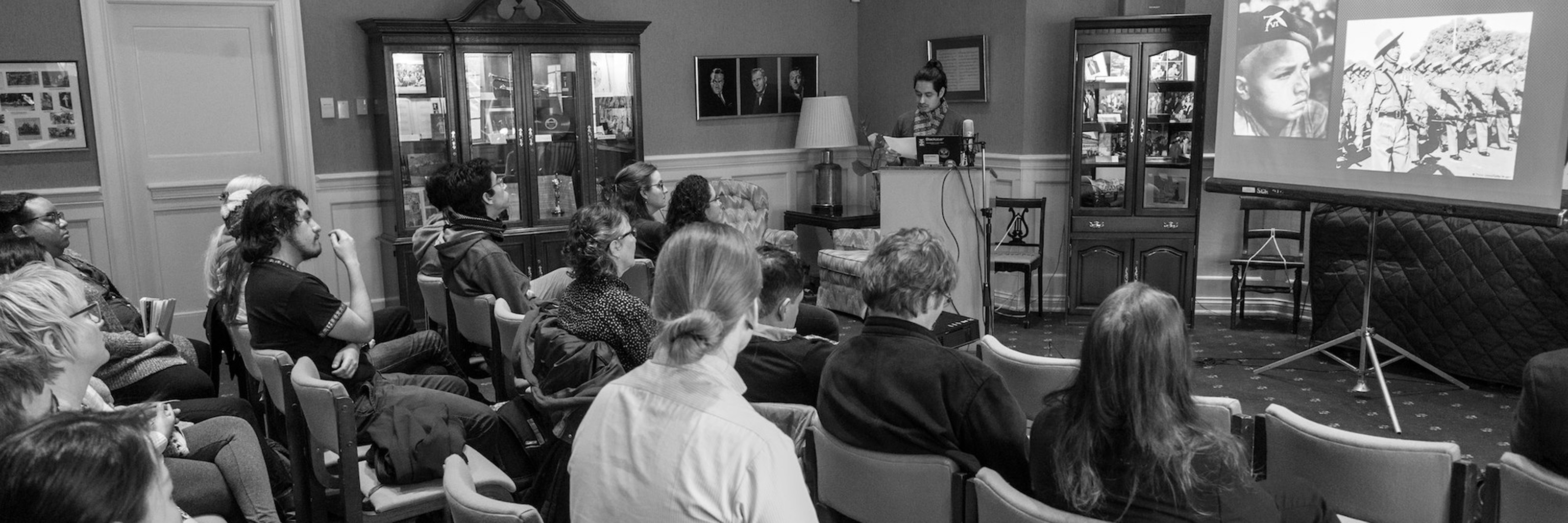An undergraduate degree in Folklore and Ethnomusicology includes opportunities for internships, pre-professional training, service learning, experiential learning, study abroad, teaching, and mentorship. These applied experiences augment degree coursework, giving our students a diverse set of skills, useful both within and outside of academia. Our students learn about topics of great importance to specific groups of people and can apply insights from their training to a wide range of professional and advanced degree settings.
Career Preparation
What do public folklorists and ethnomusicologists do?
Public folklorists and ethnomusicologists work primarily in government or non-profit arts, cultural, or educational organizations, such as arts councils, historical societies, libraries, museums, or organizations devoted specifically to folk arts, culture, heritage, tourism or folklore.
They are engaged in a variety of activities, including (but not limited to) field research and documentary work, and the production of public programs or educational materials, such as performances, artists' residencies, exhibitions, festivals, sound recordings, radio and television programs, films, videos, and books.
Outside the academy as well as in its professional schools and outreach programs, folklorists and ethnomusicologists work as mediators between vernacular and institutional discourses and agendas, or apply folkloristic techniques and knowledge to social problems.
- In public health, folklorists undertake ethnographies of community practices, belief systems, and communicative norms in order to design more effective public information campaigns, preventive strategies, community resources, and means of treatment.
- In social work, folklorists and ethnomusicologists work in areas such as refugee resettlement, legal advocacy, technical assistance in marketing traditional arts, and in community conflict resolution.
- In gerontology, folklorists and ethnomusicologists do research on memory arts, personal narrative, music and life review.
Folklorists and ethnomusicologists also work with labor unions, human rights organizations, neighborhood organizations, legal organizations and citizen campaigns.
I really don’t think I could have chosen a better path for myself…. I feel extremely prepared to find a career that incorporates the passions that I cultivated at IU.
Joel Chapman, B.A. 2017

 The College of Arts
The College of Arts